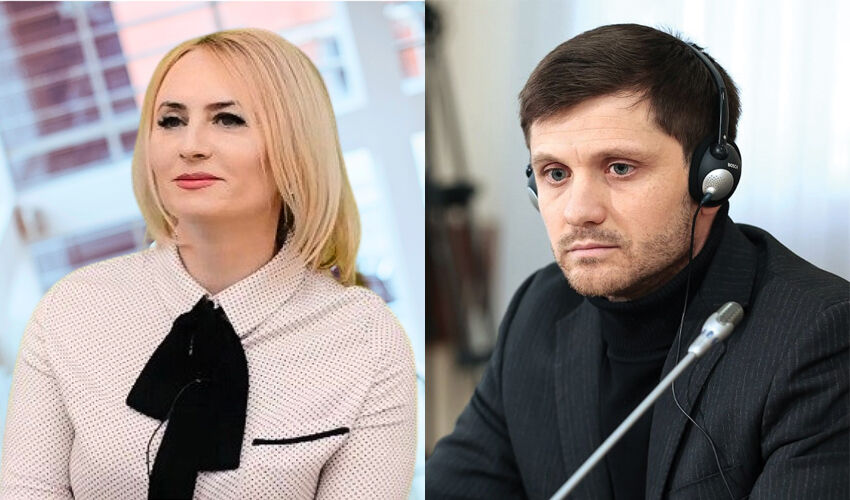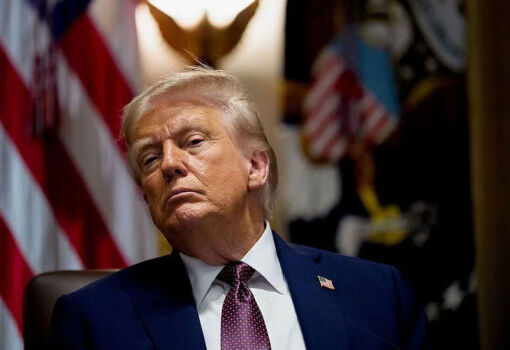
Angela Munteanu-Pozhoga, Ion Chirtoaca
Politicians call for decisive action
Politicians believe that drastic measures are needed. According to Chisinau Mayor Ion Ceban, the authorities should recognize the sale and use of drugs as a national problem: “The spread of drugs has even reached the territory of educational institutions. Whose interest is behind this and who is patronizing those who run a ‘business’ on the health and lives of our children?”, – asks Ceban.
The Party of Socialists has proposed the creation of a parliamentary platform on the issue of countering the spread of narcotic substances. “We have already appealed to the chairman of the National Security Commission, which can, among other things, involve the SIS – I am sure that these guys know what is happening in the country. We are working on the basis of our socio-medical commission. After all, the problem is prevention, treatment, rehabilitation and resocialization,” said PSRM deputy Vladimir Odnostalco.
According to MP Grigorii Novac, drugs are becoming more and more accessible to the younger generation: “Synthetic drugs are often cheaper than a lunch in a canteen, which allows criminals to draw into their networks, first of all, children who do not yet have enough ability to realize the danger of drugs,” Novac said at a briefing in Parliament.
The chairman of the Our Party parliamentary faction, Renato Usatii, suggested toughening the punishment for crimes related to drug trafficking: “This is the only way to defeat the drug mafia in our country: life imprisonment for organizing the sale of drugs and 15 years in prison for distribution.
Public hearings were held on the platform of the parliamentary commission on human rights and interethnic relations shortly before the end of the previous convocation, which gathered a wide audience of representatives of government agencies, the expert community and the civil sector. It was perhaps the first time that the problem of drug addiction and drug trafficking has become one of the most acute in our society.
Law enforcement agencies recognize that the main challenges are the rapid adaptation of drug traffickers to new technologies and distribution channels. Moreover, Moldova has become a transit country, as the European Commission report clearly states. And transit also affects the domestic market, especially for synthetic drugs. They are cheaper to produce, but cause rapid addiction.
There has been an increase in the transit of drugs through the mail, both disguised and open. Border police have noted an increase in attempts to illegally move drugs across the state border. Among the main factors, experts cite the country’s geographical location, proximity to the EU, as well as the war in Ukraine and regional instability.
According to the National Agency of Public Health, at the end of 2023, the officially registered number of drug users in Moldova was just over 12,000, including 612 new cases. The incidence rate in 2023 was 25.2 cases per 100,000 inhabitants (23.1 in 2022).
The agency has not yet provided more recent data. In general, it publishes such statistics, as a rule, once a year – for the International Day against Drug Abuse and Illicit Trafficking, which is celebrated on June 26.
In recent years, the age group of 25-35 years old – able-bodied people, mostly men, representatives of the country’s reproductive potential – has prevailed among those under medical supervision for drug use. At the same time, among those identified without addiction, the average age at the time of registration was 22.9 years. For eight out of ten, their first “experience” was marijuana. The number of underage users is growing – in 2024, 50 systematic users among minors were identified. But these are only official statistics.
The European Commission has pointed out the gaps
In Moldova there are 37 drug treatment rooms at the district level and 390 drug treatment beds in three hospitals in different regions of the country. Access to treatment is ensured in 13 prisons. In 2024, 139 new patients were registered in the national opioid pharmacotherapy program; the total number of its participants increased to 2,625 (compared to 2,332 in 2022 and 2,376 in 2023), according to the European Commission’s Progress Report of the Republic of Moldova 2025. The document shows that cooperation in drug control shows some progress. Indeed, Moldova has adopted the Law on the circulation of narcotic and psychotropic substances and plants containing them, as well as precursors, new psychoactive substances and substitutes for drugs. The essence of the law is the classification of substances according to EU standards and the revision of the national approach to the trafficking of drug precursors depending on this classification.
At the same time, the EC report states that Moldova has not adopted a new national drug strategy and related action plans covering prevention, supply and demand reduction, as well as reducing the harms associated with drug use. The national anti-drug strategy for 2020-2027 was invalidated back in early 2023. And this, according to experts, is a worrying gap in the government’s anti-drug policy. Without it, all other measures seem unsystematic and sporadic.
The EU document also states that Moldova should further develop forensic expertise, including the capacity of laboratories to detect new psychoactive substances (NPS), as well as strengthen evidence-based measures and information campaigns aimed at addiction prevention, treatment, risk and harm reduction, rehabilitation, social reintegration and recovery.
According to experts, previously the main place of drug distribution was nightclubs; in recent years, the geography has expanded to colleges and lyceums.
According to the National Bureau of Statistics, drugs are in third place after theft and hooliganism among crimes committed by young people aged 14-29.
Prevention is a priority
The Union of Lawyers of the Republic of Moldova, based on the signals about the increase of drug use among young people, has set a priority task – the elaboration of Guidelines for the prevention of drug use among young people. Ion Chirtoaca, a judge specializing in criminal cases at the Chisinau Court, member of the Council of the Union of Lawyers of the Republic of Moldova and member of the Council of the National Institute of Justice, told Logos Press.
“The aim of the guide is to propose a comprehensive and interdisciplinary approach to the phenomenon, combining legal, social, educational and psychological aspects, in order to strengthen prevention efforts at the level of communities and state institutions,” Ion Chirtoaca said.
“We want to contribute to strengthening prevention efforts and raising awareness both among young people and those involved in their education, protection and upbringing,” Chirtoaca emphasized.
Such a Guide, which essentially resembles a program document, may well become a catalyst in the adoption of a new national strategy to fight drugs and drug trafficking. In general, it is a worthy example of involvement in solving a serious problem.
In the first place, of course, this should be dealt with by the state – at the highest level. Romanian President Nicusor Dan, for example, has called a meeting of the Supreme National Defense Council for Monday, November 24. It is planned to discuss five key topics, among which are prevention and fight against drug trafficking and consumption, “posing a threat to Romania’s national security”. We don’t have such signals yet. Because a threat is not the same as a threat?
Angela Munteanu-Pozhoga, PAS deputy and member of the European Integration Commission, said in a commentary for Logos Press that the signal from Brussels has been heard and the relevant measures are already being thought over.
“Indeed, the European Commission’s 2025 report notes the need for an updated national strategy for preventing and combating drugs. Moldova needs a modern strategic document based on the best European practices and focused on prevention, risk reduction and the fight against drug trafficking. This is indisputable,” Munteanu-Pozhoga said. – The concrete actions I support include the creation of an interdepartmental working group with the participation of representatives of state structures, civil society and experts. This group should develop an updated version of the strategy in accordance with the EU standards”.
Among other measures the deputy noted is the introduction of a unified national system of data collection and analysis integrated into a similar EU system. Currently, data on drug use is scattered.
It is also necessary to develop and implement mandatory educational programs on the harm of drugs in schools and lyceums. Develop treatment and risk reduction services and expand counseling centers. And, of course, invest in the capabilities of the police and Customs Service to identify and interdict trafficking routes, and strengthen international cooperation to combat drug trafficking, including with EU structures.
All this should be done without delay, and the National Strategy for Preventing and Combating Drugs together with the Government’s Action Plan should be submitted to the Parliament no later than the 3rd quarter of this year, Angela Munteanu-Pozhoga emphasized.



